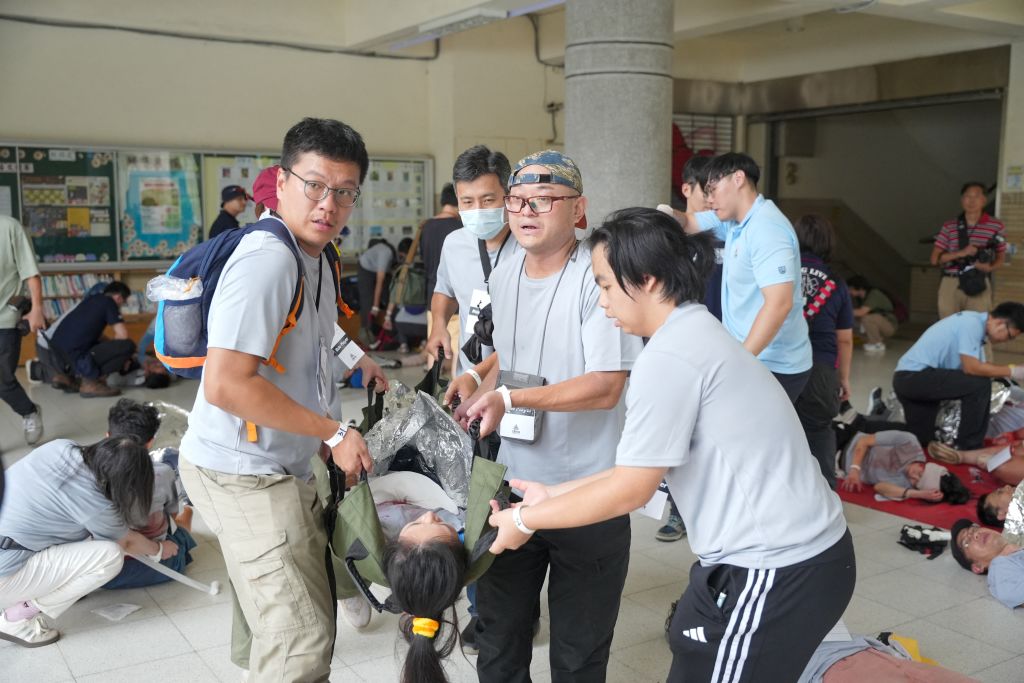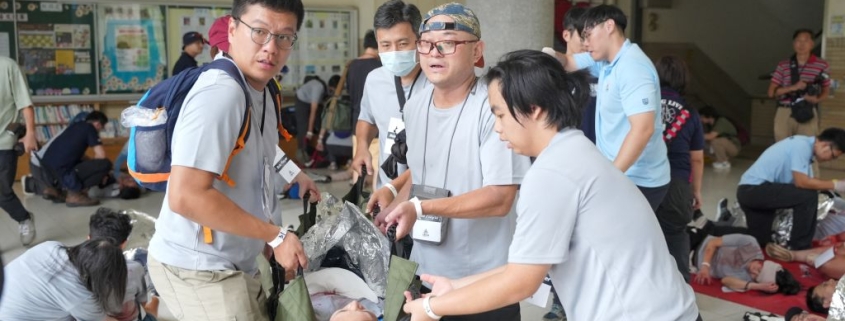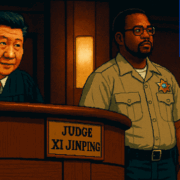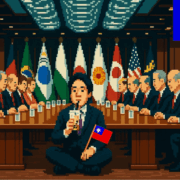Taiwan mobilises civil society to bolster civil defence

Taiwan has taken a big step towards bolstering civil defence, marshalling a range of resources and know-how across society.
A top-level committee, launched in June and detailed in late September, has been working to incorporate civil expertise into defence policy. In an unusual move for Taiwan, the group includes representatives from grassroots organisations that have been working since 2022 to absorb lessons from Ukraine’s experience at war with Russia.
Most of the island’s people are remarkably ill-prepared for an attack from an increasingly aggressive China. For example, few Taiwanese would know what to do if bombs began shattering nearby streets.
In detailing the purpose of the committee, President Lai Ching-te said that citizens need to know how to deter an approaching enemy. By strengthening resilience, Taiwan can prepare for both disasters and national defence.
The 23 members on the committee, the Whole-of-Society Defense Resilience Committee, include the defence minister and seven other ministers, with President Lai Ching-te as the chairperson. Also on the committee are representatives from Taiwan’s space agency, the Association of Hackers in Taiwan, Google Taiwan and Buddhist and Christian religious groups. The chairperson of PX Mart, one of Taiwan’s largest supermarket chains, is an adviser.
‘The composition of the committee was a recognition that emerging national security challenges require new approaches to risk management and that must include whole-of-government coordination—both horizontal and vertical—as well as a whole-of-society coalition,’ said committee member Enoch Wu. He heads Forward Alliance, one of the grassroots NGOs that prepares Taiwanese civilians for natural disasters and war.
Taiwan’s ability as a society to coordinate with its armed forces and government in response to a military threat is lightyears behind that of Ukraine and Israel. Globally, Israel is considered the gold standard.
Even though this is an early step for Taiwan, and progress will probably be slow, it is still a significant development. By bringing so much talent together to improve civil defence, the government should become much more able to mobilise society in time of need.
Before the committee held its first meeting behind closed doors on 26 September, President Lai in a speech promised to ‘expand the training and utilisation of civilian forces’ and ‘improve the readiness of our social welfare, medical care and evacuation facilities, and ensure the protection of information, transportation and financial networks’. The committee is also looking at ways to improve food supplies and protect energy and other critical infrastructure facilities so that they keep operating during emergencies. Taiwan’s interior minister said the government had identified 310 such facilities that needed protection or duplication.
President Lai said the committee would hold tabletop exercises in December and hold an unscripted civil defence exercise in March 2025. In June it will coordinate with the military for the annual Huang Kuang Exercise, an annual drill that is supposed to show off readiness to face an attack from China.
Presence on the committee gives a platform to two private grassroots organisations that prepare Taiwanese civilians for national emergencies. Since 2022, Wu’s Forward Alliance has been working with Spirit of America, an independent American NGO that has provided aid to Ukraine in collaboration with the US Department of Defense. Spirit of America has offered instructors and other experts to help Forward Alliance train emergency first responders in Taiwan.
Forward Alliance says 19,000 people have attended its training workshops since its founding in 2020. The workshops include basic first aid, search and rescue and team-based training in managing crowd safety and people in shelters. Forward Alliance says it’s also trained more than 1300 Taiwanese law enforcement professionals in emergency casualty care and donated first aid kits to various police precincts. Taiwan’s de facto US ambassador, Raymond Greene, attended a Forward Alliance exercise on 14 September with nearly 300 participants that simulated civilian responses to a mass-casualty explosion in a rural area.
Liu Wen, chairperson of the Kuma Civil Defense Education Association, who is also on the committee, said her organisation would like to train Taiwanese government officials and bring a ‘wartime consciousness’ to the committee. What Taiwan needs to overcome, she says, ‘is the ideological challenge that war preparedness is a form of provocation to China.’ Kuma trains Taiwanese in self-defence capabilities ranging from basic first aid skills to planning evacuation routes from homes and deciphering Chinese propaganda and disinformation.
Ingrid Larson, a top official with the American Institute in Taiwan, voiced support for the committee. Within Taiwan, however, Lai’s biggest challenge most likely will be winning support from the China-friendly opposition parties, the Kuomintang and Taiwan People’s Party. So far, they haven’t given much of a response, but they probably will be resistant and sceptical. While these parties firmly support democracy, they also support a more conciliatory approach to China and, in the past, have labelled Lai as a provocateur.





